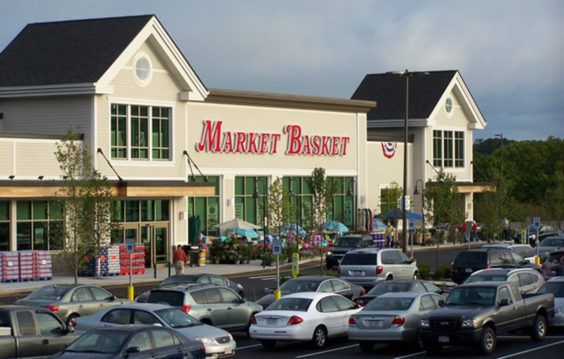
A supermarket struggle that made international headlines has finally ended, with the “Good Arthur” coming out on top. But after weeks of protests that brought the grocery chain his grandfather founded to its knees – what exactly has he won?
Late last night, the board of directors of New England’s Market Basket formally approved a sale of the company to once and future CEO Arthur T. Demoulas. For more than $1.5 billion, Demoulas will acquire the remaining 50.5% of the company that he doesn’t already own and be reinstated as CEO once the transaction is closed. In the interim, effective immediately, he and his management team will assume day-to-day operational authority of the company. “All Associates are welcome back to work with the former management team to restore the Company back to normal operations,” a company statement read.
To hear some tell it, the deal came just in the nick of time – the Boston Globe cited sources that the board was prepared to close down all but ten of Market Basket’s 71 stores and fire nearly all of its employees, if a deal couldn’t be reached.
With lawsuits, arguments and at least one well-documented fistfight, Arthur T. and his cousin Arthur S. Demoulas had waged a decades-old struggle for control of the family business. Arthur T. became head of the company in 2008, and was well-loved by employees and customers alike for his personal touch, the generous compensation given to associates, and the low prices offered to customers.
The sale agreement – the apparent end of the long family struggle – is a sharp turnaround from June. That’s when the Arthur S.-controlled board fired Arthur T. What resulted was an epic battle between supporters of the “Good Arthur”, and the man they branded the “Bad Arthur.” Longtime Market Basket customers refused to shop there anymore. Company drivers loyal to Arthur T. refused to make deliveries. Shelves began to empty, as employees gathered at rallies by the thousands, demanding their old boss back.
Those protesters have now gotten what they wanted. But with unstocked shelves, empty tills, unhappy vendors and customers who may have gotten used to shopping somewhere else, it won’t be easy to get back to business as usual. The weeks-long stalemate has so damaged the company that it will take some time for it to bounce back – if it does at all.
Restocking the stores alone “will be a monumental task,” former Market Basket warehouse director Andy Lien recently told the Boston Globe. “It is basically having 71 new stores open for the first time on the same day.”
Current and former employees familiar with the stores’ supply chain process have estimated that restocking all of the stores will take thousands of truckloads of food, and hours of unloading at each Market Basket location. Add to that suppliers who may not be able to fill such huge orders at short notice, suppliers who have taken their business elsewhere and won’t sell to Market Basket anymore, and loyal shoppers flooding back into stores, eager to fill their carts after weeks of staying away, and the process could take several weeks minimum.
It will also take a significant outlay of cash, from a company that has been losing millions of dollars a day over the past several weeks. At this point, Arthur S. may be just as happy to get rid of Market Basket, as Arthur T. is to acquire it.
Even so, employees have gotten right to work trying to get things back to normal. Trucks began heading to stores and employees started filling shelves early this morning, just hours after the agreement was signed.
And yet at least one analyst questions whether Market Basket was even worth fighting over anymore. “I think the company has been permanently damaged by this family feud and I don’t think they’re going to bounce back,” supermarket analyst David Livingston told the Boston Herald. “If they do come back, it will take years for them to recover from this.”
As painful an experience as the whole saga has been, and as challenging a task as getting back to normal will be, it’s been a fascinating story for supermarket shoppers outside Market Basket’s New England base to watch from afar. Many observers have said Arthur T. showed that it’s possible to pay employees well, keep prices low and still make a profit. Attempting to tinker with that formula, and dismissing the man responsible for it, led to an unprecedented display of people power – as both employees and shoppers insisted on having a say in the matter.
And many customers are elated. “FINALLY, I can shop again!!” one Twitter user wrote. “Time to help them back on their feet & shop!!” added another.
Arthur T. himself was both elated and humbled, when he addressed a crowd of employees upon his return to work this morning. “The public watched in awe and admiration because you empowered others to seek change,” he said. “You proved, all of you, that your grassroots effort to save your company and harness thousands and thousands of people was not about a family conflict or a Greek tragedy.” Instead, it was “about fairness, justice and a solid moral compass that unites the human soul.”
It’s enough to make you wonder – if your favorite grocery store’s CEO is dismissed someday, will you protest, boycott the store – or even notice? Market Basket shoppers and employees sure did. Now Arthur T.’s work begins, to turn that loyalty, and $1.5 billion, into a profitable business once again.
Image source: DeMoulas Market Basket











They will bounce back strong. Market Basket and ATD will have no problems in recovering the millions lost during that horrible time. Although my local store is struggling to keep stock in meat, a lot of customers are happy enough to buy the other basics (cereal, pasta, etc).
One gentleman commented about the lack of Market Basket brand pasta (on sale 5/$5) and I told him that I’m happy to wait a week for a new shipment so long as they’re in business.
For those shopping the good ol’ Demoulas, I’d highly recommend buying just Market Basket branded items.